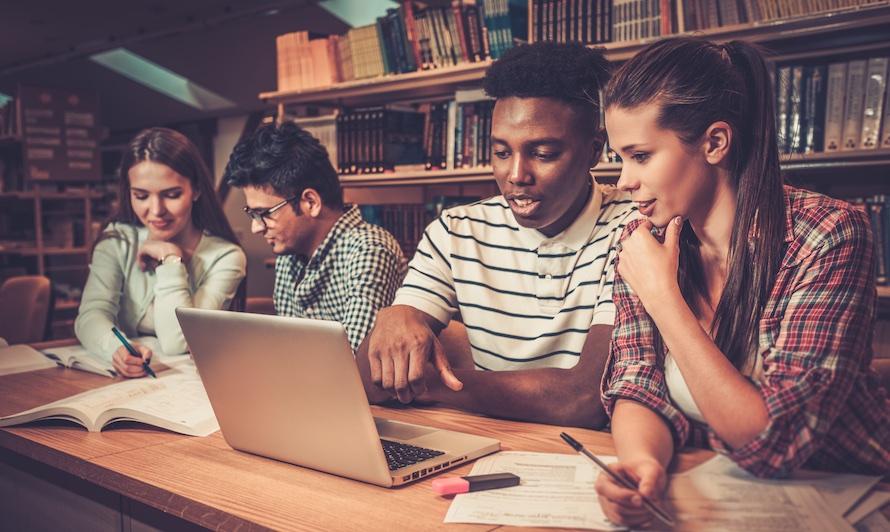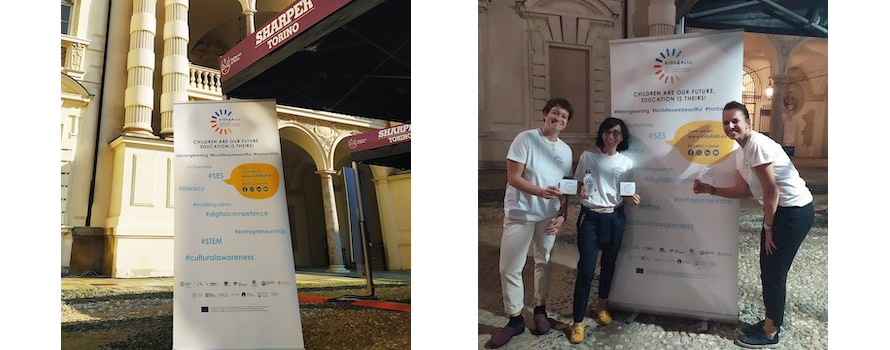
The European Researchers' Night is an annual public event promoted by the European Commission that aims to put European citizens into dialogue with the world of research and innovation to display the diversity of science and its impact on our daily lives. Accordingly, the event took place in 29 countries on September 24th and 25th, 2021. KIDS4ALLL was on board, represented by the Italian research team from UniTo in front of the beautiful scenery of the Valentino Castle, one of Turin’s major attractions.
In order to benefit from the unique opportunity to reach out to the main KIDS4ALLL target groups, the project was introduced to a substantial number of visitors and accompanied by a micro research on existing collaboration schemes in different learning contexts and their perceived efficiency. Being one of the central aspects in the project methodology and fundamental for the peer work on the KIDS learning platform, the Italian local research team was interested in some first-hand, very informal and context-bound feedback from the different actors in the educational scenario. Accordingly, students, teachers and educators were asked if they had been exposed to group work or if they had used collaboration schemes as pedagogic approach to stimulate dialogue among the learners.
Respondents were generally very much in favour of collaboration schemes in formal (school) and non-formal (such as after-school programms in associations or youth parish clubs) activities, among which the most common was partner or group work in occasion of small-scale projects or peer-to-peer learning. However, several students also revealed that highly heterogenous backgrounds and attitudes among peers would often slow down learning processes and reduce outputs and performances.
Unsurprisingly, most respondents of our micro-study referred to substantial changes caused by the pandemic, that had altered learning and collaboration dynamics due to new spatial, temporal and technical conditions (OEDC 2020). Indeed, according to data from an international research carried out in 40 countries world-wide, 67% of teachers had never experienced online teaching before and were thus lacking essential competences not only to convey learning contents in other formats but also to maintain priory implemented collaboration structures in traditional settings, such as partner or group works (INDIRE 2020b). Putting the lens on Italy, from an INDIRE research (INDIRE 2020a) carried out in June 2020 with a sample of 3774 teachers, it further emerged that educators used the frontal lesson approach above all in online lectures and that online sharing environments have been used primarily as repositories rather than collaboration spaces. However, in a similar vein, data from the same research also points to improvements on several soft skill categories, such as collaboration and self-regulation, during distance learning, in particular for secondary students.
Accordingly, facing the contemporary highly diversified learner population, societal challenges must be transformed in opportunities rather than threads and traditional concepts of school and learning linked to consolidated and static practices must be put increasingly into question (Cavaletto, Cornali 2021). Thus, commitments on didactic innovation and pedagogic development should point on supporting and empowering students, teachers, educators, parents and stakeholders involved in the daily education scenario to recognise and promote the real necessity of lifelong learning.

